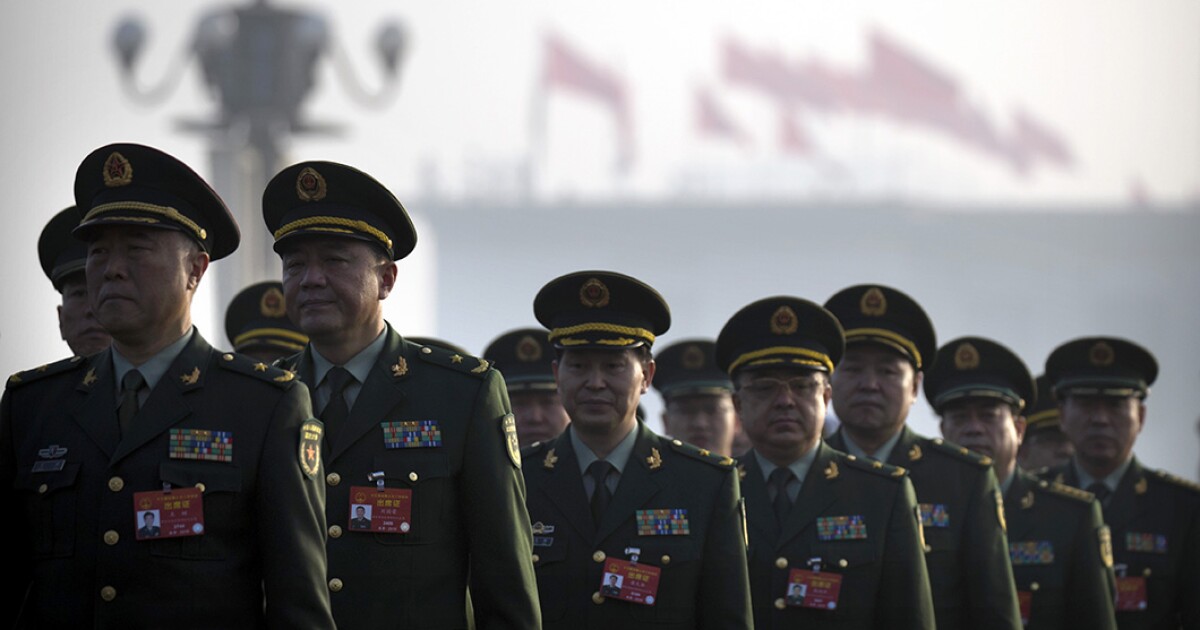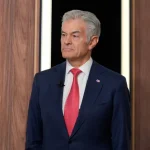

While China is aggressively expanding its military, a new report from the National Defense University has exposed areas of possible concern for the People’s Liberation Army.
Using the biographies of more than 300 senior Chinese military officers from 2015-2021, the researcher, Joel Wuthnow, found that they were largely homogeneous in age, education, gender, and ethnicity and that there was limited cross-training between military branches, both of which could pose long-term problems.
“Senior PLA officers tend to stay not only within their own services but also in their assigned functional areas. Operational commanders, for instance, rarely have career-broadening experience in logistics, and vice versa,” the report found. “Rigidity in PLA assignments could reduce China’s effectiveness in future conflicts.”
WHITE HOUSE’S MESSAGE TO CHINA: ‘NOT THE TIME’ FOR HELPING PUTIN
As a result, the Chinese military may be “hampered by officers with narrow perspectives” because “senior PLA officers tend to stay not only within their own services but also in their assigned functional areas.”
Those senior officers rose through the ranks “patiently” over careers that span more than four decades while there is little ability for rapid professional ascension. Those who were able to rise in rank did so by “demonstrating loyalty” to Chinese President Xi Jinping or by being a member in good standing with the Chinese Communist Party, which the report said was “essential to survival and advancement.”
“All PLA officers are members of the Chinese Communist Party and must have enough political acumen to demonstrate loyalty to Xi and his agenda,” the report added.
Chinese military leaders had complained for years that officers had ineffective leadership abilities, and to combat that, they have been given “combat-realistic” training and new educational programs. There is also somewhat of a generational divide, in which the current cohort of leaders’ formative experiences were in the late Cold War period, while their successors will have had those experiences in the post-Cold War era.
Despite the apparent military shortcomings, the Pentagon still refers to the Chinese as its “pacing challenge,” in part because they have heavily invested in building up their military under Xi’s leadership.
They conducted the first fractional orbital launch of an intercontinental ballistic missile with a hypersonic glide vehicle last July, and it “demonstrated the greatest distance flown (~40,000 kilometers) and longest flight time (~100+ minutes) of any Chinese land attack weapons system to date,” according to a report titled “Challenges to Security in Space — 2022,” from the Defense Intelligence Agency released earlier this year.
The Chinese military has accelerated the pace of its nuclear expansion program to the point where it could “have up to 700 deliverable nuclear warheads” within roughly five years, according to the Pentagon’s “Military and Security Developments Involving the People’s Republic of China” report released last fall.
Earlier this week, Xi met with Russian President Vladimir Putin in Uzbekistan at a regional summit. The two leaders have forged a relationship as they stand against the West, NATO, and the United States, and they reaffirmed their countries’ strategic relationship at the meeting, though Putin acknowledged that the Chinese had some “questions and concerns” about the war in Ukraine.
CLICK HERE TO READ MORE FROM THE WASHINGTON EXAMINER
Against the backdrop of their meeting was Ukraine’s successful counteroffensive that liberated a significant amount of territory in the northeastern part of the country. Throughout the war, the once-vaunted Russian military has repeatedly failed to accomplish its goals and has repeatedly experienced logistical and morale problems.
“I think that this is a relationship of convenience, not necessarily one of trust or one that will combine their efforts on all things,” Deputy Secretary of State Wendy Sherman said on Friday at a Washington Post event. “They are certainly going to work together. But they will also work for advantage with each other.“







